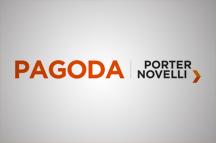 When Finance Secretary John Swinney sets his budget for 2016/17 next week, it will mark a historic change as it will differ from all of its predecessors. For the first time, a Scottish Rate of Income Tax (SRIT) will be introduced.
When Finance Secretary John Swinney sets his budget for 2016/17 next week, it will mark a historic change as it will differ from all of its predecessors. For the first time, a Scottish Rate of Income Tax (SRIT) will be introduced.
The change is a direct result of the Calman Commission’s proposals that led to the Scotland Act 2012. In effect, the income tax rate set by Westminster will be cut by 10p for Scots, with the Scottish government responsible for determining the full rate through its own budget.
So, for example, if the Scottish government wanted to set the basic rate at the same as the current UK rate – 20% – it would set SRIT at 10% (10p in the pound) and be responsible for raising that.
Swinney has said that the SRIT will “be set on principles that are fair and effective” while Nicola Sturgeon has said that there is unlikely to be any change – so 10% looks a certainty.
 Whatever the figure, the Finance Secretary still has to decide how to carve up the pie. He has the benefit of £400m worth of Barnett consequentials for health from George Osborne’s spending review and, in light of Audit Scotland’s report which noted that spending on health had fallen by 0.9% in real terms, he is likely to pass it on to health in its entirety.
Whatever the figure, the Finance Secretary still has to decide how to carve up the pie. He has the benefit of £400m worth of Barnett consequentials for health from George Osborne’s spending review and, in light of Audit Scotland’s report which noted that spending on health had fallen by 0.9% in real terms, he is likely to pass it on to health in its entirety.
And, with growing concerns about the long-term health of Scotland’s economy – even before the (short-term?) closure of the Forth Road Bridge – Swinney is likely to do what he can to support infrastructure spend.
Who will be the big loser? More than likely local government. But will they be given the same flexibility as Osborne gave councils in England and Wales? – The discretion to raise council tax by 2% towards the cost of social care. Scottish councils would welcome that flexibility and it would allow the government to be seen to respond to growing council unrest.
All of this is simply a rehearsal for financial year 2017/18 when the Scottish government will have complete control over income tax rates and bands. Politics then will become more interesting at Holyrood, with more of the Scottish public taking an interest.












